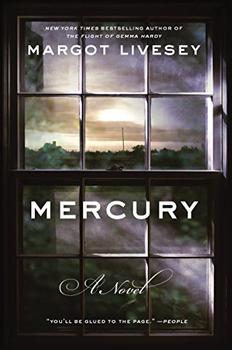Summary | Excerpt | Reading Guide | Reviews | Beyond the book | Read-Alikes | Genres & Themes | Author Bio

A Novel
by Nickolas ButlerSet mostly in the woodlands of north Wisconsin, Nikolas Butler spins a familial saga that explores the making of men and the meaning of manhood in his affecting novel The Hearts of Men.
The 1962 summer that young Nelson Doughty spends at Camp Chippewa will form his life. Nelson intends to work toward his Eagle rank, but there's only a little to be done to reach that goal. Worse, Nelson's inept at sports, and he's more introvert than companionable. His one friend is Wilbur Whiteside, but, to make Nelson further outcast, Wilbur's the adult who runs the camp. Sensing Nelson's discomfort, Wilbur persuades him to play reveille each morning, a task Wilbur believes will give him discipline and a certain measure of respect. In fact, the duty may work to make Nelson's "desire for perfection" something useful rather than an obsession. That summer is the opening segment of the novel, which includes backstory references and family life anecdotes that deepen the story. In the next segment decades later, Nelson's the camp director, and has grown to have an edge of melancholy, and perhaps even a longing for the road not taken. Despite Nelson's best efforts, the nature of scouts and scouting have both changed with the times, and so the camp has changed as well. Wilbur's era was near Victorian with sex, drugs, and alcohol unmentionable. Nelson's era is more complex.
And Nelson, too, is a complex, layered character. Wilbur, thinking of Nelson as a son, had financed private schooling for the boy after his family and home life collapse. Then it's on to West Point and into Vietnam's cauldron. (Knowledgeable veterans may be jarred by some misuse of terminology.) From war, Nelson returns with the aura of "a badger or a wolverine: low center of gravity, all armored in muscle and sunburned ... and eyes that no longer radiated warmth or compassion or apology but simply a wary patience." Nelson's long-ago campmate and only adult friend Jonathan Quick, son of town money, popular and athletic, has taken a different road. Jonathan grows rich expanding the family business, but ironically, he finds himself alienated from his son, Trevor, as much as Nelson was alienated from his father. Nelson and Jonathan, in some manner, personalize the fractious 60s and self-indulgent 80s. However, that tentative, stumbling relationship in youth has become a speak-the-truth solid friendship, especially after Jonathan's son, Trevor, finds a compassionate ear in Nelson.
It is here, with Vietnam war hero Nelson, taciturn, intense, and aloof; and Jonathan, rich on multiplied inheritance, and bored with his marriage, that the story opens up to include Trevor and his long-time girlfriend, Rachel. Bribery and argument cannot persuade Trevor away from Rachel, until she sojourns to South Africa on an environmental project, there to fall in desperate love with an Afrikaner. That affair — betrayal — makes of Trevor a different, stronger man, one who becomes a SEAL, embarks on several tours in war-torn Afghanistan, and eventually makes a surprising return to Wisconsin.
As complex and probing as it is, with so many nuanced characters to explore, the novel's pace doesn't linger. But it also takes time to stop and listen and learn from what might otherwise be peripheral characters. One of these is a young single mother working as a stripper in a Canadian borderland lumberjack bar. Although R-rated, the episode where Jon, Nelson, and Trevor meet the stripper echoes with the heartbeat of real life, especially poignant because shy and unsophisticated Trevor is eager to be seen as a man capable of his own choices.
This is a nuanced exploration into the hearts of men. And the north country of Wisconsin, pristine and wild, even though it's sparsely described, allows for a sense of colorful realism to radiate from the page. Dialogue flows realistically, and the internal conflict accurately reflects what we bring upon ourselves through our innate characteristics or through our choices. Thematically centered on the masculine, The Hearts of Men will appeal across genders.
![]() This review was originally published in The BookBrowse Review in March 2017, and has been updated for the
January 2018 edition.
Click here to go to this issue.
This review was originally published in The BookBrowse Review in March 2017, and has been updated for the
January 2018 edition.
Click here to go to this issue.

If you liked The Hearts of Men, try these:

by Margot Livesey
Published 2017
A taut emotional thriller about love, obsession and the secrets that pull a family apart.

by Ellen Ullman
Published 2012
The award-winning writer returns with a major, absorbing, atmospheric novel that takes on the most dramatic and profoundly personal subject matter
When men are not regretting that life is so short, they are doing something to kill time.
Click Here to find out who said this, as well as discovering other famous literary quotes!
Your guide toexceptional books
BookBrowse seeks out and recommends the best in contemporary fiction and nonfiction—books that not only engage and entertain but also deepen our understanding of ourselves and the world around us.